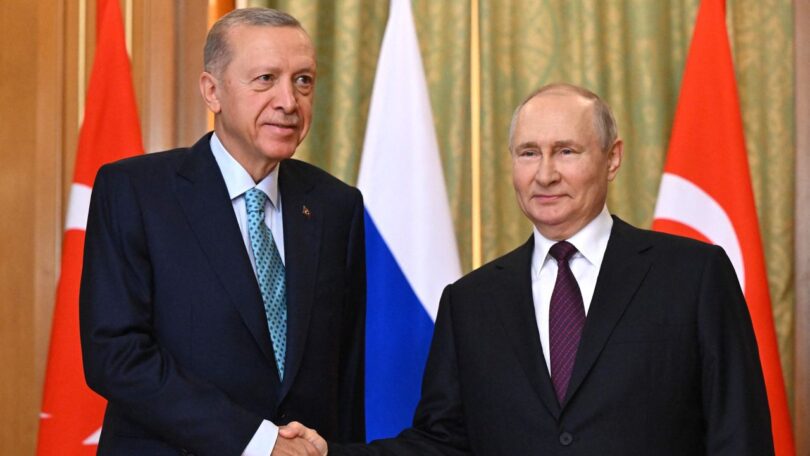Recently, Turkish President Recep Tayyip Erdogan met his Russian counterpart President Vladimir Putin in the Black Sea coastal resort of Sochi. Both leaders held in-depth discussions about a possible revival of the grain deal which is very crucial for easing a worsening food crisis by getting Ukrainian grain to the global market. Russia quit the deal in July a year after it was brokered by the United Nations and Turkey complaining that its own food and fertiliser exports faced serious obstacles.
The war in Ukraine has brought unimaginable woes and diverse crises that equally affected all nations, communities, businesses, and economies across the globe. Russia and Ukraine are major producers and suppliers of food grains, and fertilizers to the rest of the world, particularly a majority of the nations to most countries in the world. After the Kremlin launched its so-called special operation against Kyiv, Ukrainian grains were stuck at Seaports, food storages and farmhouses due to Russia’s blockade of Ukrainian Seaports. This situation caused a food crisis worldwide, along with blocking the provision of finances to Ukraine which was essential to strengthen Kyiv’s defences against the Russian invasion. Previously, Turkey’s Erdogan and the UN Secretary-General played a pivotal role in materializing the Russia-Ukraine Grain deal last year. Later, Moscow quit the agreement in July accusing Western nations of blocking Moscow’s agriculture exports. Presently, Western nations have moved the UN and Turkish President to revive the grain deal to manage funds crucial to boost Ukraine’s war efforts along with easing global food crises but clever Putin has prepared a tactful plan to counter Western strategy through a tit-for-tat move. Putin said Russia could return to the grain deal if the West fulfils a separate memorandum agreed with the United Nations at the same time to facilitate Russian food and fertiliser exports. Russia also demanded the West include the Russian Agricultural Bank in the SWIFT international payments system, which was previously cut off by the European Union as part of sweeping sanctions in response to Moscow’s invasion of Ukraine.
The reports suggest that Putin has a plan to supply up to 1 million tonnes of Russian grain to Turkey at reduced prices for subsequent processing at Turkish plants and shipping to countries most in need in prevailing food shortages. Russia aims to close a deal with six African countries over a plan to supply Burkina Faso, Zimbabwe, Mali, Somalia, the Central African Republic and Eritrea with up to 50,000 tonnes of grain each free of charge. Interestingly, Turkey’s Recep Tayyip Erdogan has earned great respect, and economic and monetary benefits for its nation through kinetic diplomacy during the war in Ukraine. Previously, Turkey championed the grain deal received tremendous appreciation and grabbed strategic objectives from both sides, Now Erdogan is endeavouring to strike a win-win deal that not only fulfils the economic interests of warring nations but also brings lucrative benefits to Turkey.
Currently, global competition between the US-led Western bloc and Russo-China alliance is at its peak. Both contesting groups are persuading progressing nations in Asia and Africa to join their clubs, while diverse incentives are being offered including economic grants, technical assistance, trade incentives and others. The US-Africa Summit and the Russia-Africa Summit are two conflicting ideas of major contenders, which fueled this hostility. Presently, Putin has planned to manoeuvre its economic influence in Africa on the cost of the Ukraine grain deal which would be a two-edge weapon for the West. It would not only consolidate Moscow’s influence in that region but would be a great blow to US strategy in the entire continent. Putin’s plan is tactful and interesting, however, time will decide whether Western nations ostensibly get swallowed a fly in favour of Ukraine or otherwise.







